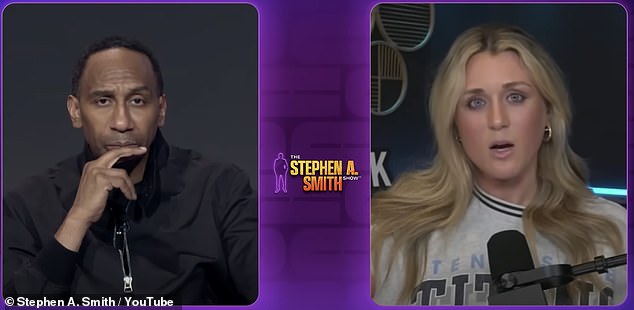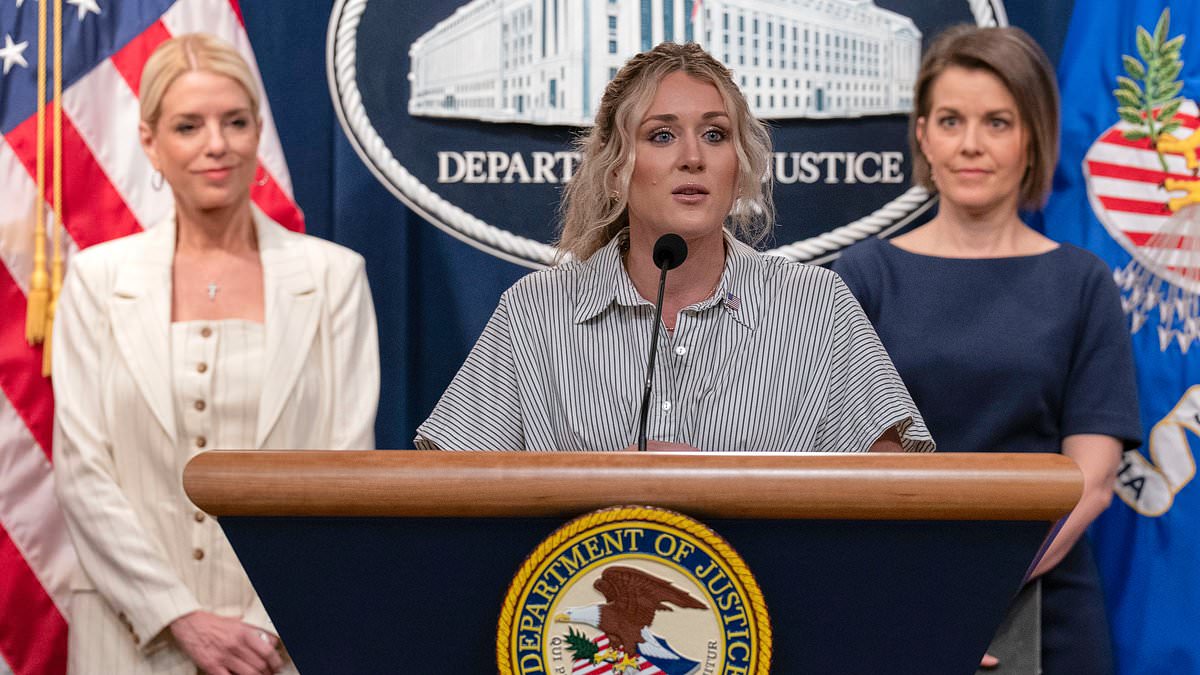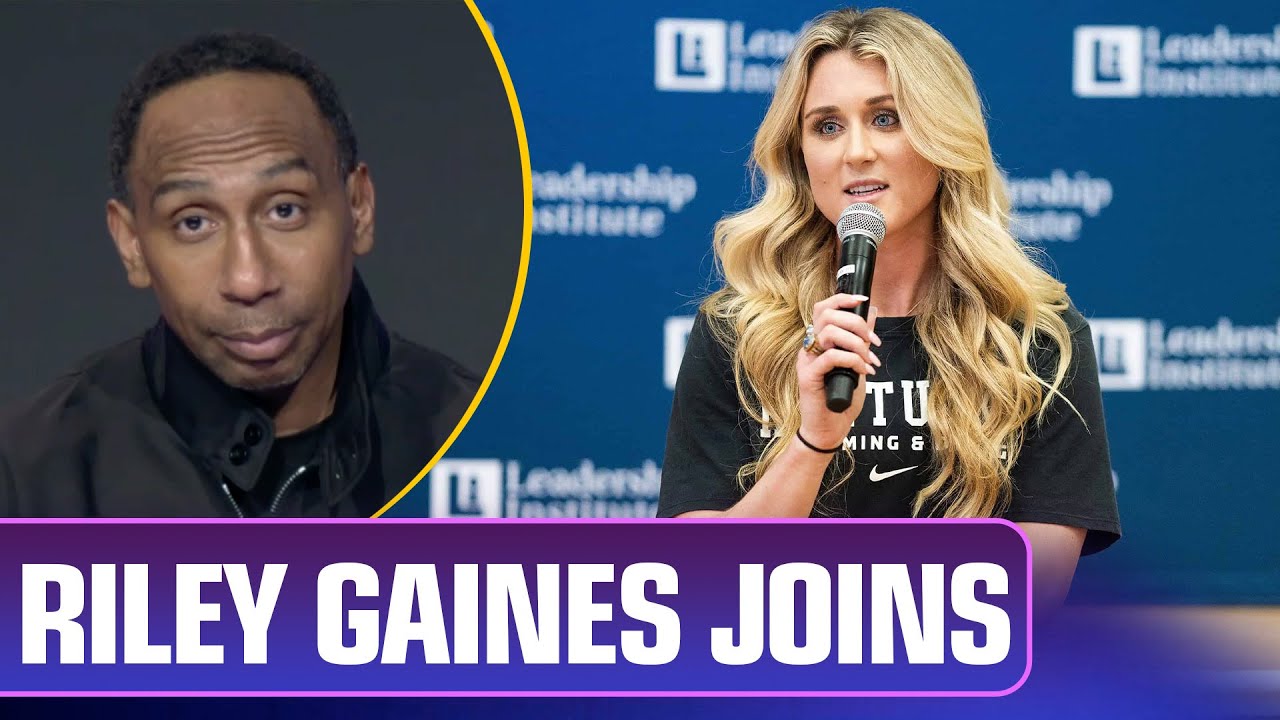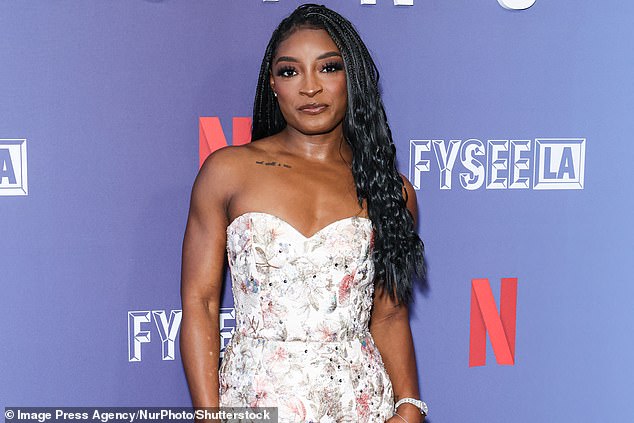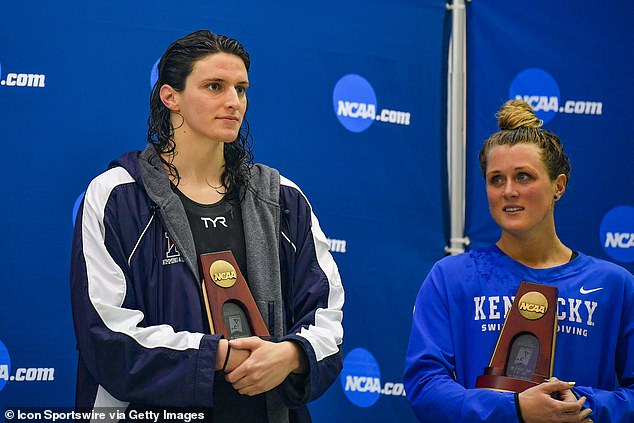Riley Gaines Defends Her Savage Simone Biles Comeback After Being Confronted by Stephen A. Smith
Riley Gaines, a former University of Kentucky swimmer and vocal conservative activist, has stirred significant controversy with her recent media campaign against transgender athletes competing in women’s sports. This heated public feud took center stage when Olympic gymnastics champion Simone Biles confronted Gaines over her remarks, particularly concerning a Minnesota high school softball team that utilized a transgender pitcher. The exchange escalated as Gaines publicly criticized this situation, leading Biles to reply that Gaines should advocate for the transgender community instead of targeting them for bullying. As a suggested compromise, Biles even proposed the establishment of a separate competitive category for transgender athletes.
Following their exchange, Biles later expressed regret for her comments, yet Gaines remains unwavering in her views. She strongly emphasizes the importance of addressing fairness and integrity in women’s sports, consistently sharing her personal experiences throughout these discussions. During a feature on Stephen A. Smith’s podcast, she vigorously defended her positions, drawing provocative comparisons to the sexual abuse scandal surrounding former gymnastics doctor Larry Nassar. Gaines articulated her concerns about how female athletes could be subjected to situations reminiscent of abuse when sharing locker rooms with transgender athletes.
The Background of Tension Between Gaines and Biles
The roots of the conflict between Riley Gaines and Simone Biles are embedded in the broader discourse surrounding the inclusion of transgender athletes in competitive sports. Gaines’s criticisms have targeted not only individual cases but also the policies governing participation in various sports categories. She often highlights the implications that such policies have on fairness and equality for cisgender female athletes. For her, the issue is not just academic but personal, as she draws on her swimming career to illustrate her points.
In the podcast discussion with Stephen A. Smith, Gaines recounted the intense emotional and physical struggles she has faced within her sport, particularly in terms of privacy and safety. By referencing Nassar’s abusive behavior, she intends to underscore concerns that stem from shared environments between cisgender and transgender athletes. Her narrative touches on broader themes of trauma, emphasizing that female athletes should never feel threatened or uncomfortable in their own spaces.
Gaines’s Perspective on Fairness in Sports
Riley Gaines has become a controversial figure in the ongoing debate regarding gender identity and sports. By championing the cause to restrict transgender women from competing against biological females, she has garnered both substantial support and stern criticism. Figures like former President Donald Trump have expressed their backing for her stance, which has fueled her visibility as both a commentator and an influencer within political circles.
Her perspective is deeply rooted in a belief that the biological differences between sexes provide a compelling argument for maintaining separate categories in competitive sports. She argues that allowing transgender women to compete against women can result in an imbalance that jeopardizes fair competition and opportunities for female athletes. This viewpoint has sparked fierce debates and further solidified divisions among various advocacy groups.
The Outcome of the Gaines and Biles Dialogue
Despite gaining traction in her advocacy, Riley Gaines faces a challenging landscape as she navigates her role in public discourse. Her exchanges with Simone Biles and Stephen A. Smith serve not only as an avenue for her to voice her opinions but also as a reflection of the wider societal tensions regarding gender and sports. This dialogue emphasizes the complexities involved in addressing both inclusion and fairness in athletics.
Smith, known for his thoughtful yet challenging style, aimed to facilitate a productive conversation while recognizing the weight of Gaines’s personal experiences. However, the manner in which these discussions unfold can heavily influence public perceptions and policy decisions moving forward. The conversation has led many to ponder the future of women’s sports and the means by which inclusion can be balanced with fairness.
Conclusion
The ongoing discourse initiated by Riley Gaines and fueled by the responses from figures like Simone Biles raises important questions about the future of women’s sports. As conversations surrounding inclusivity and fairness evolve, it is crucial for all sides to engage in respectful and informed dialogue. Those interested in exploring this topic further should stay tuned for upcoming developments and discussions, as the debate will likely persist in shaping the landscape of competitive athletics.
